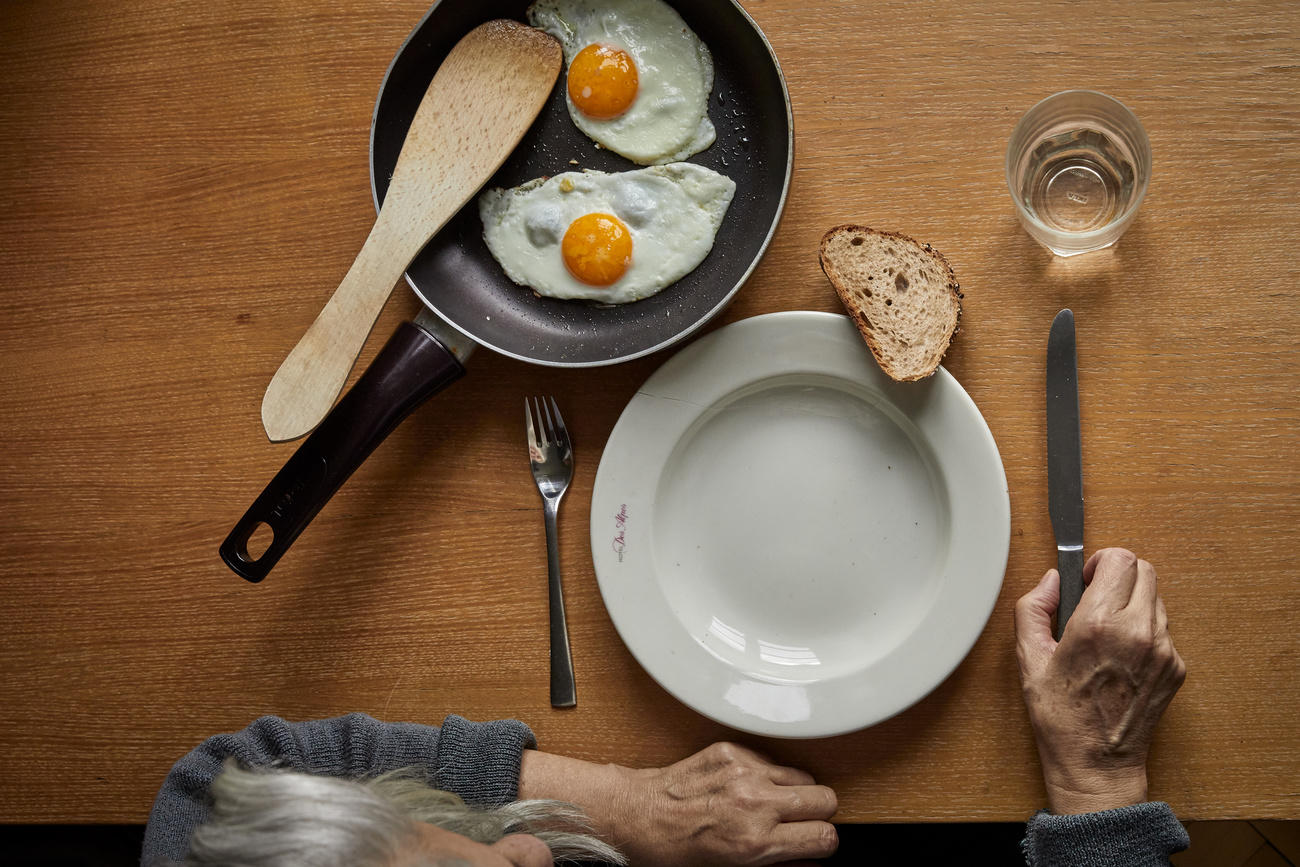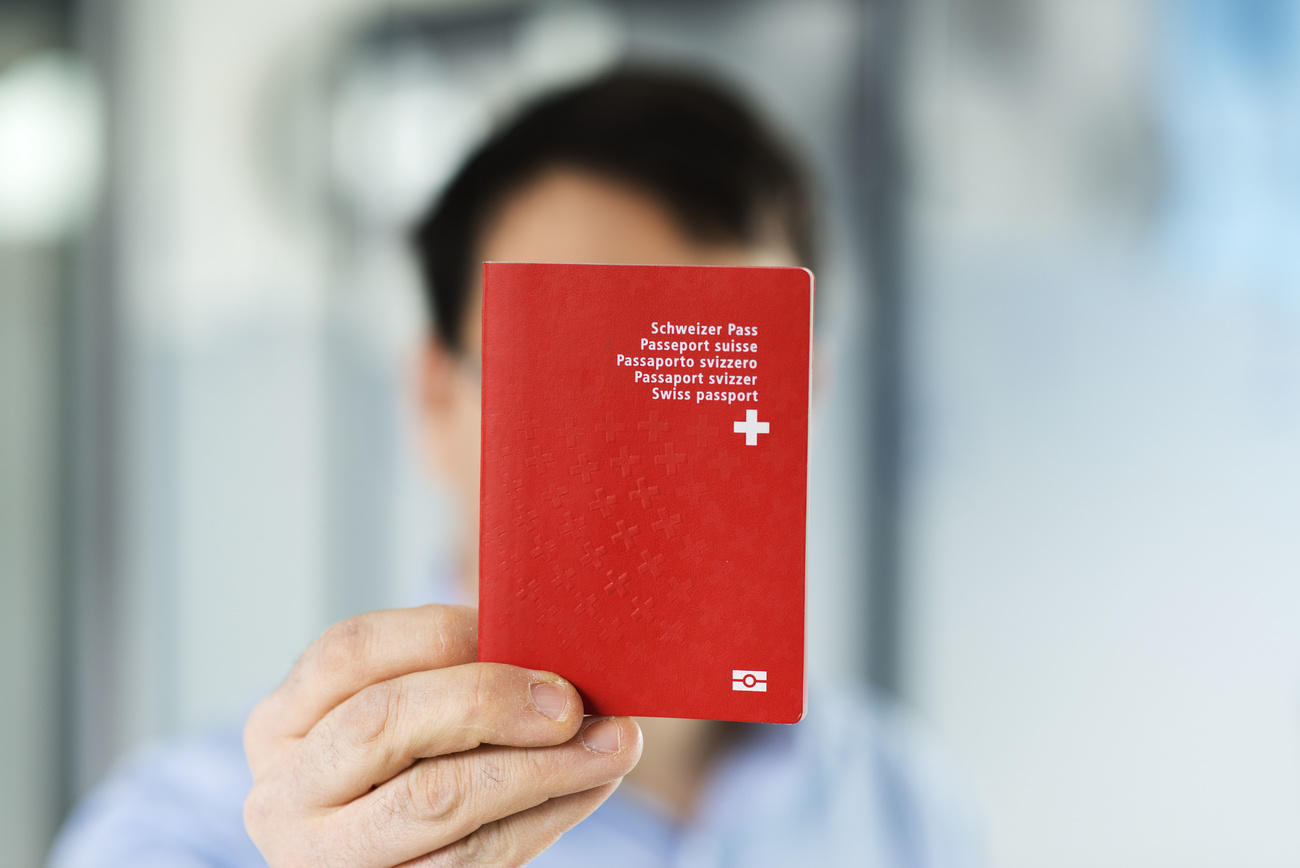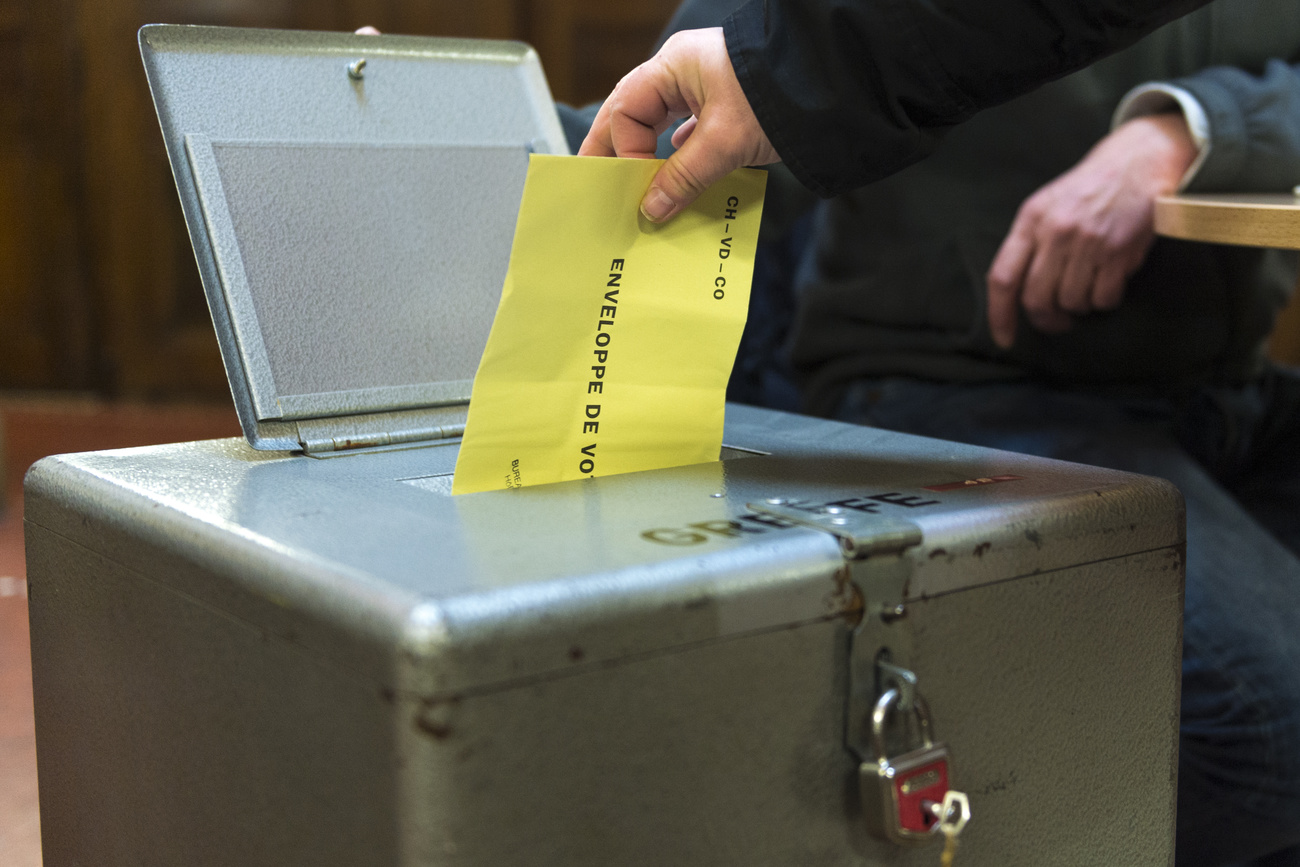Swiss passport attracts more Russians than Italians

Not everyone wants to become Swiss. Residents from far away find it more attractive than Europeans, while age and attachment to one's native country also play a part.
Resident Russians are the champions of naturalisation, while Austrians living in Switzerland do not bother applying for it, according to a recent study. For the first time, the Federal Commission on MigrationExternal link (FCM) and the University of Geneva have published detailed figures on naturalisationExternal link. The data show differences in procedures at local level, but also provide information on the nationalities of those who obtain Swiss citizenship.
Just over 10% of Russians living in Switzerland were naturalised between 2011 and 2017. Russians are a relatively mobile population, but those who come to live in Switzerland want to stay for a long time, says report co-author Professor Philippe Wannerat at UNIGE’s Institute of Demography and Socio-economics.
“People who embark on the process intend to settle here for the long term and participate in political life,” he explains, adding that a Swiss passport makes mobility easier than a Russian one. Wannerat also mentions another factor: “For people who live in less democratic regimes, the possibility of participating in elections and voting is particularly attractive,” he says.
Iraqis (6.01%) and Sri Lankans (3.16%), one of Switzerland’s largest migrant groups, are also among the countries with a high naturalisation rate. “These are people who are not willing or able to return to their country of origin for political reasons,” explains Philippe Wanner. “For these people, naturalisation can also be a sign of gratitude to the country that took them in.”
Generally speaking, the Swiss passport is less attractive to people from neighbouring countries. Austrians living in Switzerland have the lowest naturalisation rate, at 0.69%, while only 1.24% of Italians living in Switzerland obtained Swiss citizenship between 2011 and 2017. Italians nevertheless represent the largest foreign community in Switzerland.
“For European Union (EU) nationals, naturalisation is of little interest since they already have access to the European labour market and benefit from the free movement of persons,” explains Wanner. Moreover, the stay of Europeans in Switzerland is often more limited in time than that of immigrants from more distant countries.
Wanner says naturalisation often takes place around the age of 33. Italians now tend to arrive in Switzerland between the ages of 25 and 30, and ten years later when they are eligible for naturalisation they no longer see the need to do so. Many also renounced naturalisation up to 1991, since Italy had not accepted dual nationality until then.
The Kosovar population, which is also one of the largest immigrant groups in Switzerland, has a higher naturalisation rate (2.28%) than the Italian population. “It is the young people who arrived during the war in the former Yugoslavia who have been naturalised,” says Wanner. “The Kosovars are also attached to a country that welcomed them during the conflict, and don’t want to return to a country that offers them 200 euros a month in salary.

More
Becoming Swiss: ‘Where do I sign?’
More naturalisations in big towns
Applying for Swiss citizenship is a complex process, since the municipalities, cantons and the federal government are involved in assessing the suitability of persons to obtain a Swiss passport.
The FMC and UNIGE data show that there is still a significant margin of discretion, despite attempts at harmonisation. “Since the entry into force of the new nationality law in 2018, there has been a degree of standardisation, particularly with regard to language requirements,” notes Wenner. “But the commune level investigation leaves a large margin of interpretation to local authorities.”
A general trend is that more naturalisations are taking place in cities than in villages. “The fear of failure and stigmatisation is more prevalent in a small town where everyone knows each other than in a city where people are anonymous,” says Wanner.
Cantons tighten the rules
On February 9 this year, voters in canton Aargau approved an initiative that tightens the conditions for obtaining Swiss citizenship. 64.8% of voters decided to deny Swiss passports to people who have received welfare assistance in the last ten years
Ticino followed a similar path on February 18. The cantonal parliament approved a move by the conservative right Swiss People’s Party to tighten the law on citizenship, making it necessary to have repaid social benefits received over the last ten years – and not three as hitherto.

In compliance with the JTI standards
More: SWI swissinfo.ch certified by the Journalism Trust Initiative













You can find an overview of ongoing debates with our journalists here . Please join us!
If you want to start a conversation about a topic raised in this article or want to report factual errors, email us at english@swissinfo.ch.